The aroma and taste of coffee bring special moments to our everyday lives.
But have you ever wished to enjoy coffee without worrying about caffeine intake?
That’s where “decaf coffee” comes into the spotlight.
Decaf coffee offers a flavorful cup while removing most of the caffeine.
Behind this concept are diverse methods and technologies, along with the joy of selecting beans that significantly impact the flavor.
In this article, we will dive into the methods of decaf coffee production and recommend the best beans, along with tips for incorporating decaf into your daily life.
- The methods of decaf coffee production and their characteristics
- How different types of beans influence the flavor of decaf
- Recommended decaf beans for everyday enjoyment
- The benefits of decaf from health and lifestyle perspectives
- What is Decaf Coffee? Understanding the Basics
- Main Decaffeination Methods and Their Differences
- How to Choose Decaf Coffee and Recommended Beans
- Enjoying Relaxation Time with Decaf Coffee
What is Decaf Coffee? Understanding the Basics
Decaf coffee is coffee from which caffeine has been removed.
Technically, coffee with more than 90% of its caffeine content removed is classified as decaf.
As a result, it is less stimulating than regular coffee and is ideal for those looking to avoid caffeine.
However, the extent to which the flavor and aroma are preserved depends significantly on the processing methods and the choice of beans.
The History of Decaf Coffee
The history of decaf coffee dates back to the late 19th century.
In Europe, concerns about caffeine’s effects led to the development of decaf products.
Initially, chemical solvents were commonly used, but flavor loss and safety concerns spurred advancements.
Early Development and Background
The initial decaf methods were quite rudimentary, often resulting in significant flavor loss.
Using chemical solvents, early attempts successfully removed caffeine but also drastically altered the coffee’s taste.
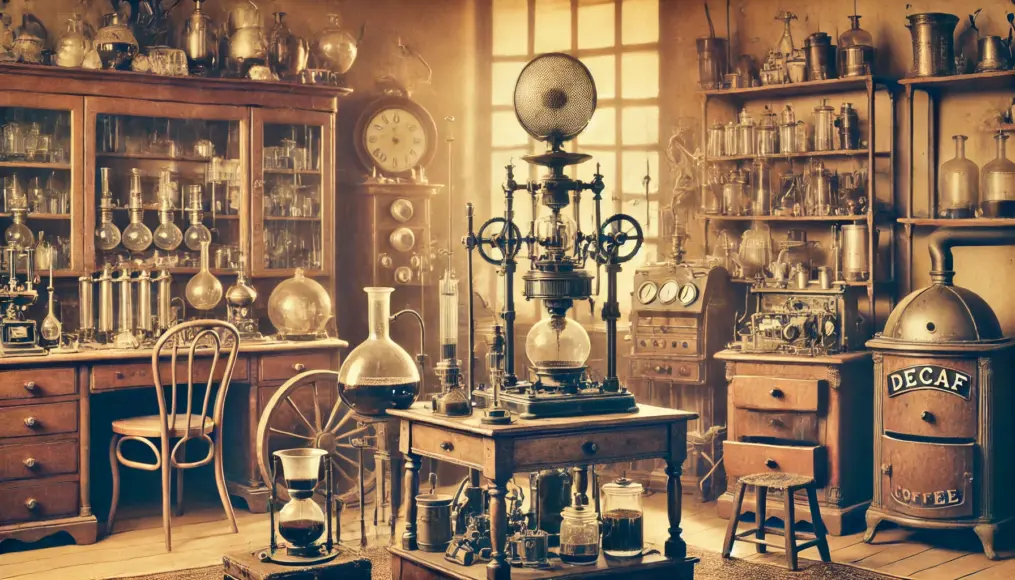
Advances in Science and Technology
By the 20th century, groundbreaking methods like the Swiss Water Process and CO2 Process emerged.
These innovations allowed caffeine to be efficiently removed while preserving the coffee beans’ flavor.
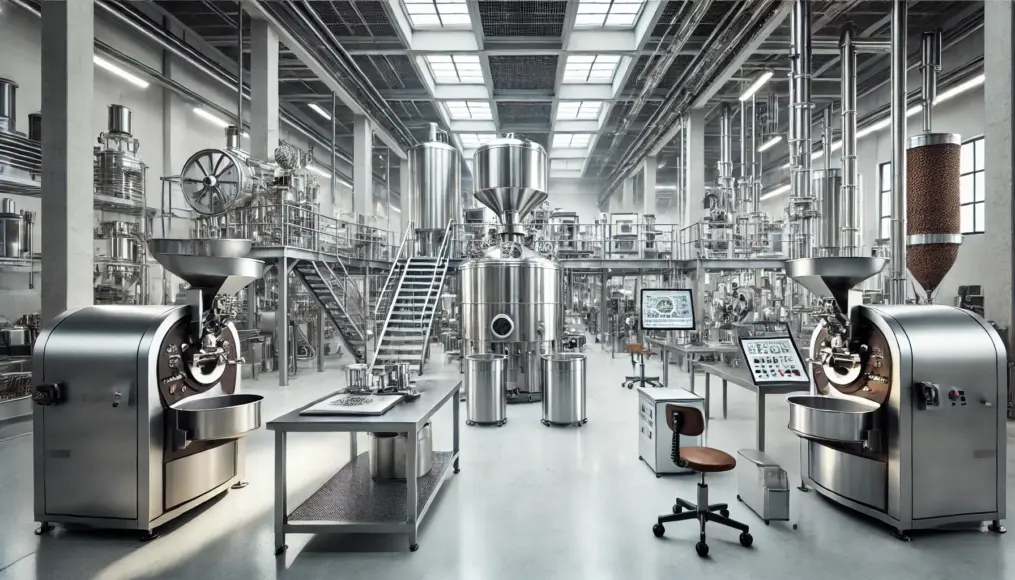
Characteristics and Categories of Decaf Coffee
Decaf coffee offers diverse flavors depending on the method of production and the type of beans used.
This diversity provides more choices tailored to different preferences and drinking occasions.
Differences by Method
Chemical solvent-based methods differ significantly from natural methods using water or CO2 in terms of flavor and safety.
Natural methods are especially valued for retaining the original taste of the coffee beans.
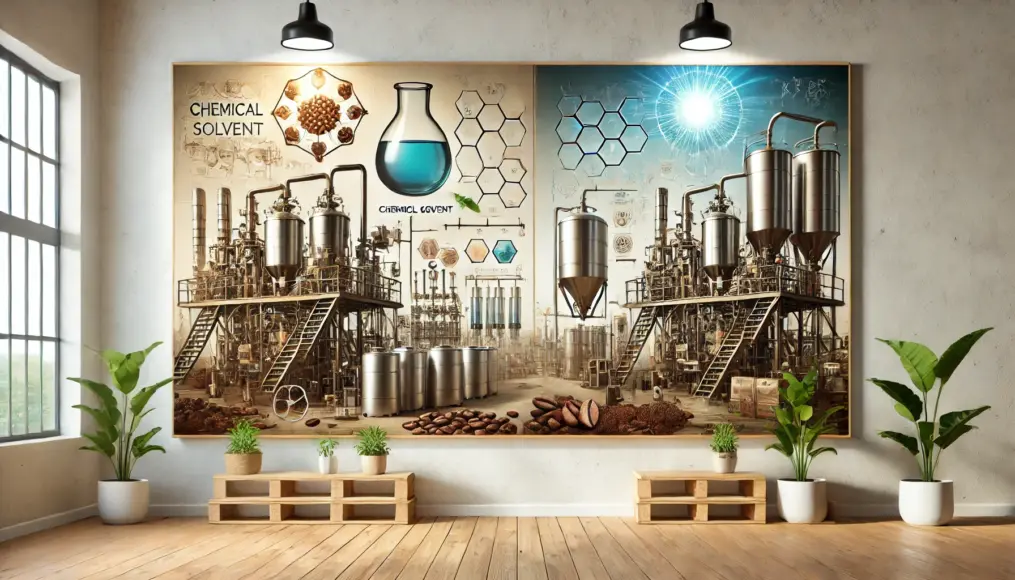
Types of Beans Used
The type of beans used in decaf is also a critical factor.
Arabica beans, known for their mild flavor, are commonly used in decaf products.
Conversely, Robusta beans, with their bold bitterness and body, cater to those seeking a more distinctive flavor profile.
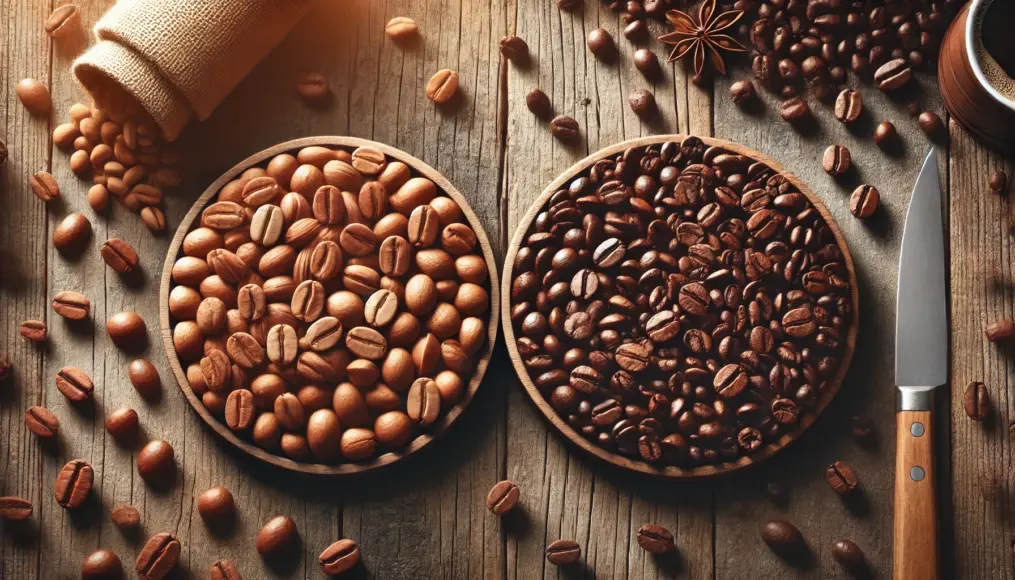
The Demand for Decaf in a Health-Conscious Society
In modern society, the demand for caffeine-free options has risen.
Decaf coffee is not only popular among pregnant women and older adults but also appeals to those focused on sleep and stress management.
Focus on Health Benefits
Decaf coffee is appreciated for allowing consumers to enjoy antioxidants and other beneficial compounds without caffeine.

Sustainability and Environmental Awareness
Amid growing concerns about environmental issues, decaf methods that minimize water usage and waste are gaining attention.
Adopting sustainable practices helps reduce the environmental impact of decaf coffee production.

Main Decaffeination Methods and Their Differences
Decaffeination methods vary depending on the technology and materials used.
These methods significantly impact the flavor and cost of decaf coffee.
Understanding these methods is essential for selecting high-quality decaf coffee.
Below, we explore the key decaffeination methods in detail.
Decaffeination Using Chemical Solvents
Chemical solvents have long been the primary approach to decaffeination.
This process involves steaming the beans to expand them, followed by using solvents like methylene chloride or ethyl acetate to extract caffeine.
This method is highly efficient and suitable for large-scale production.
Methylene Chloride Process
This method uses methylene chloride to selectively dissolve caffeine from coffee beans.
While the solvent is completely removed by the end of the process, concerns about trace chemical residues remain.
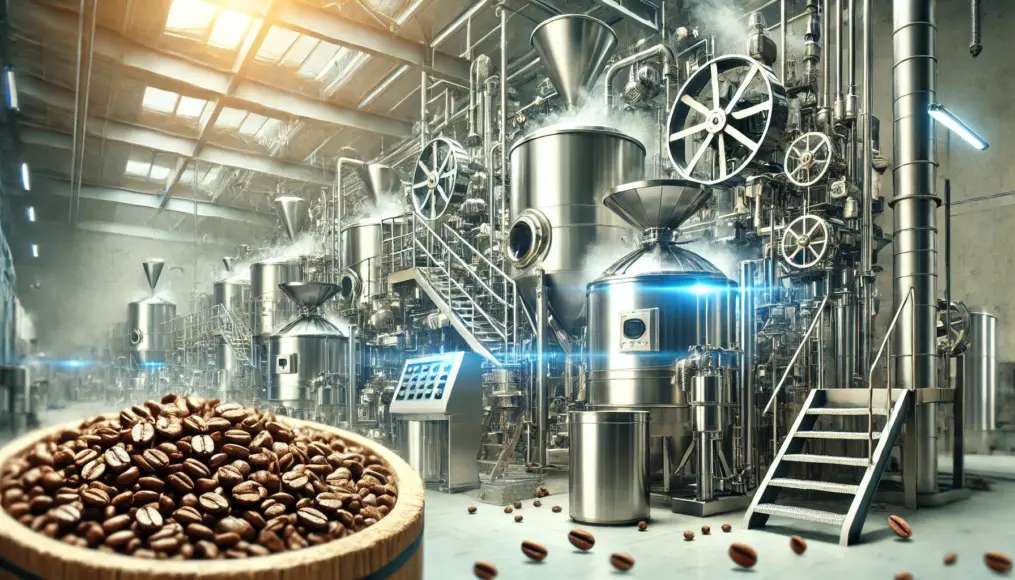
Features of Ethyl Acetate
Ethyl acetate is known as a naturally derived solvent.
Typically extracted from fruits or plants, it is preferred by consumers seeking natural processing methods.
This method is frequently used by brands catering to health-conscious consumers.
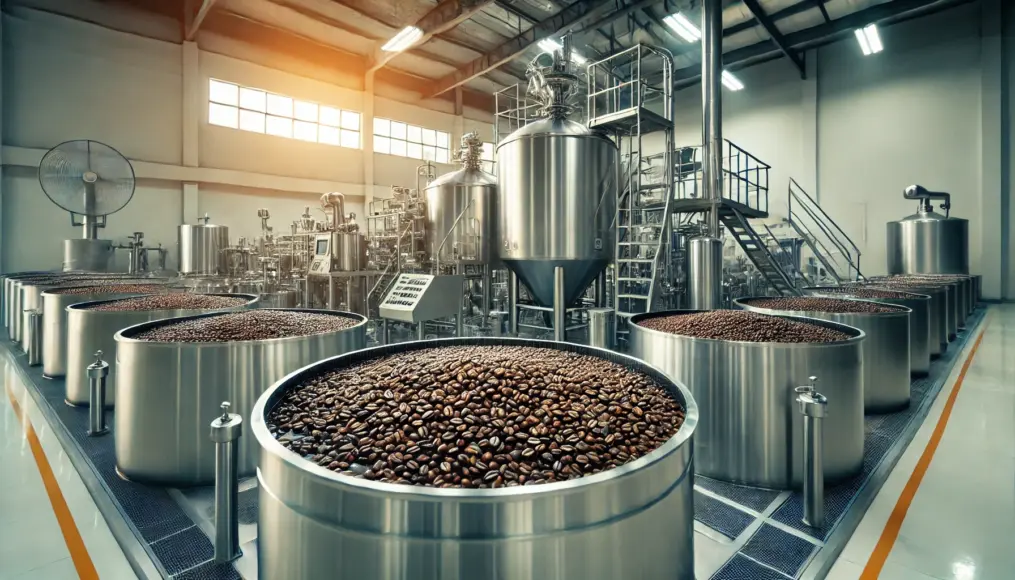
Advantages and Disadvantages
While chemical solvents are efficient, they may affect the beans’ natural flavor.
Additionally, environmental concerns about the use of these chemicals persist.
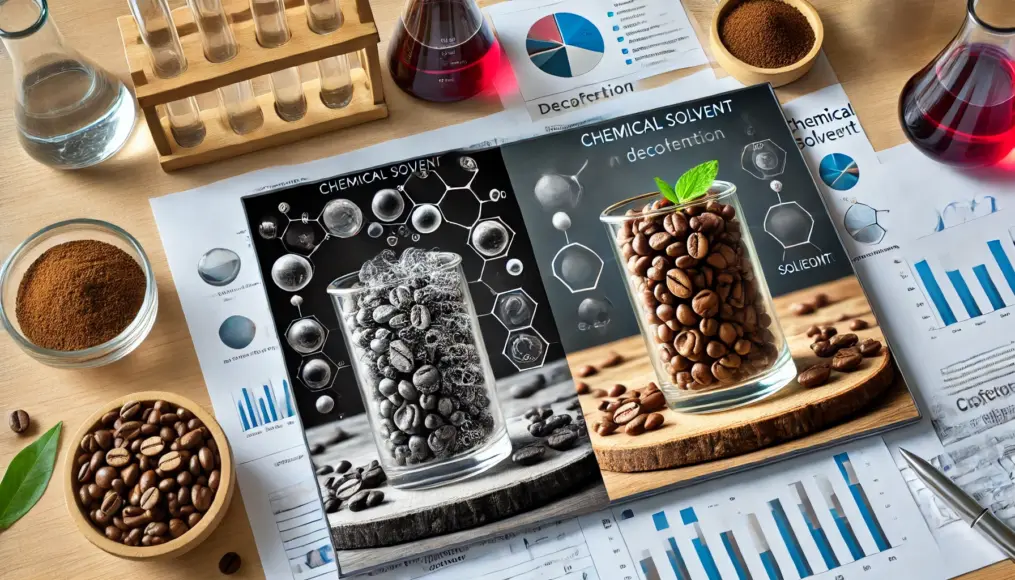
Swiss Water Process
The Swiss Water Process is a chemical-free decaffeination method that uses water to extract caffeine.
It is an innovative approach balancing safety and flavor preservation in decaf coffee production.
Removing Caffeine with Water
In this process, beans are soaked in water to dissolve caffeine.
The caffeine is then filtered out, and the beans reabsorb the coffee’s natural compounds.
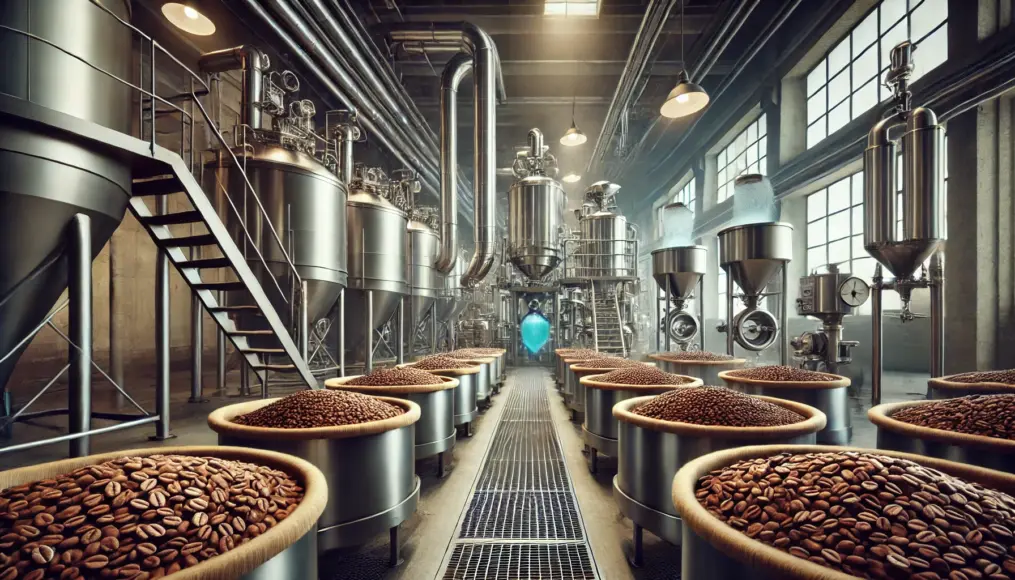
Environmentally Friendly Method
As it uses no chemicals, this process has minimal environmental impact.
It is particularly favored by eco-conscious consumers.

Advantages and Disadvantages
This method retains the coffee’s flavor exceptionally well, but the higher production costs result in pricier products.
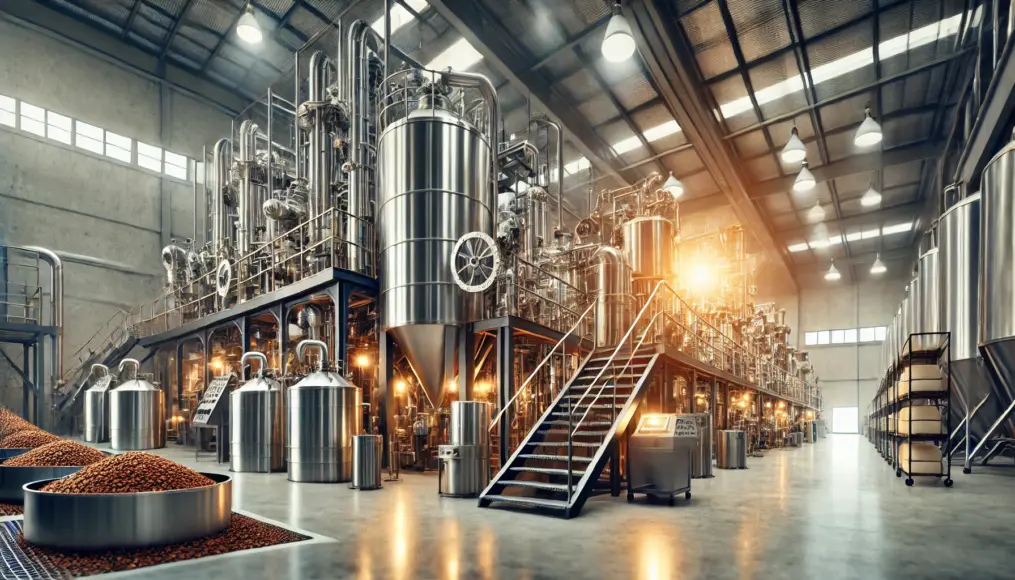
Carbon Dioxide Extraction
The carbon dioxide (CO2) extraction method involves using liquid or supercritical CO2 under high pressure to remove caffeine.
This method is especially suited for high-quality coffee beans.
What Is the Supercritical State?
When CO2 is in a supercritical state, it possesses properties of both a liquid and a gas.
This unique characteristic allows for selective caffeine extraction.
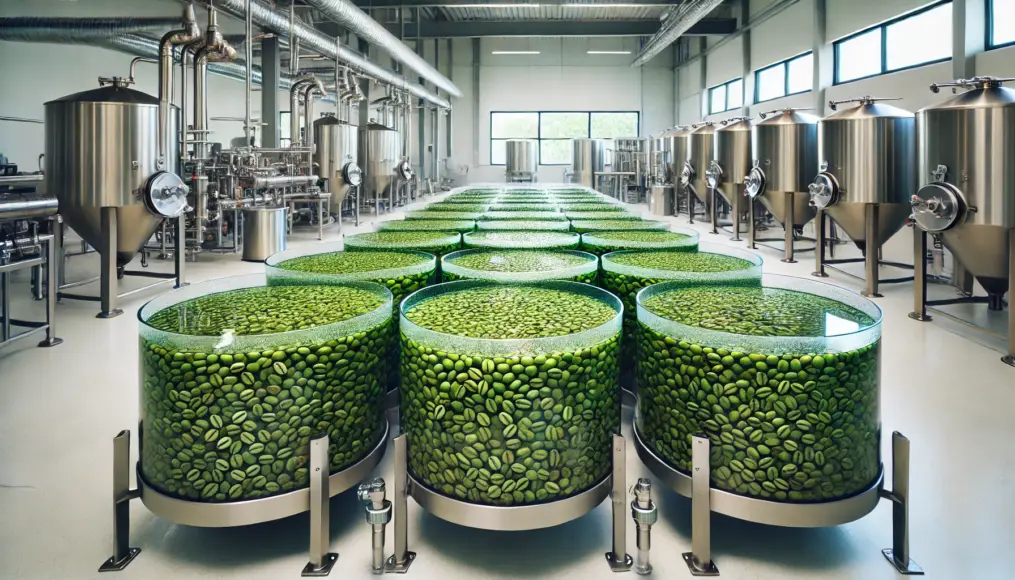
Flavor Preservation
This method excels at preserving the beans’ original flavor, making it ideal for premium decaf coffee production.

Cost Considerations
Due to the specialized equipment required, this method incurs high initial setup costs.
As a result, the end product is often more expensive for consumers.

How to Choose Decaf Coffee and Recommended Beans
When selecting decaf coffee, it’s important to understand its processing methods, origins, and roast levels.
Considering these factors can help you find a flavor profile that suits your preferences.
For those new to decaf coffee, knowing which beans to start with is also a crucial step.
In this section, we will delve into the key points of selecting decaf coffee and recommend some excellent beans.
Basic Points for Choosing Decaf Coffee
When selecting decaf coffee, focus on the processing method, roast level, and origin.
Understanding the flavor differences from each method and choosing a roast level that matches your taste can enhance your coffee experience.
Additionally, learning about the unique characteristics of beans from different origins will allow you to enjoy their full personality.
Let’s explore these elements in detail.
Understanding Processing Methods
Decaf coffee is processed using either chemical solvents or natural methods.
For example, the Swiss Water Process removes caffeine without using chemicals, preserving the beans’ natural flavors.
On the other hand, methods involving chemical solvents efficiently remove caffeine but may leave traces that some consumers might find concerning.
Choosing a method that aligns with your comfort level and flavor preferences is recommended.

Flavor Changes by Roast Levels
Roast levels significantly influence the flavor of coffee.
Lightly roasted decaf beans have a pronounced acidity and fruity taste.
In contrast, dark roasted beans offer a robust, bitter flavor and are ideal for lattes or cappuccinos.
Being mindful of roast levels can expand the ways you enjoy your coffee.

Enjoying the Characteristics of Different Origins
Even in decaf beans, the characteristics of their origin remain intact.
Ethiopian beans are known for their floral aroma, Brazilian beans boast nutty and chocolatey notes, and Colombian beans provide a well-balanced flavor suitable for daily consumption.
Exploring beans from various countries can be an exciting journey to find your favorite.

Recommended Decaf Beans for Beginners
For those new to decaf coffee, beans processed with the Swiss Water Process and lightly roasted are highly recommended.
These beans offer a fruity and light flavor that makes it easy to forget it’s decaf.
Additionally, they require no special equipment, making them accessible for anyone to try.
Decaf Coffee for Everyday Enjoyment
For daily consumption, medium roast decaf coffee is the best choice.
Its balanced flavor profile works well whether enjoyed black or with milk.
It’s perfect for morning routines or relaxing evenings.

Decaf Beans for Special Occasions
For gifts or special occasions, specialty decaf beans are an excellent choice.
Their premium quality and luxurious flavor make any moment with loved ones more memorable.
Using a pour-over method can further elevate the taste experience.

Eco-Friendly Options
For environmentally conscious consumers, organic decaf beans are the way to go.
These beans are grown using sustainable farming practices, making them a choice that’s kind to the planet.
This type of selection represents a small but meaningful step towards a better future.

Enjoying Relaxation Time with Decaf Coffee
Decaf coffee is an ideal choice for those looking to reduce their caffeine intake.
It offers a moment of peace in our busy lives, providing a calming effect on both mind and body.
Additionally, its caffeine-free nature allows you to enjoy its rich flavors late at night without compromising your sleep quality.
Here, we’ll dive into the soothing benefits of decaf coffee and practical ways to incorporate it into your daily routine.
The Calming Effects of Decaf Coffee on Mind and Body
Decaf coffee is beloved for its gentle effects on the mind and body.
In today’s stressful world, it serves as a comforting beverage to help us unwind and relax.
Let’s explore how it can reduce stress and improve sleep quality.
Stress Relief and a Moment of Calm
Decaf coffee helps alleviate daily stress without increasing your heart rate.
Taking a moment to savor its aroma can provide a much-needed respite from the hustle and bustle of daily life.
Whether after work or during a quiet evening, it creates a calming environment to rejuvenate your spirit.
It’s a simple pleasure that offers profound peace.
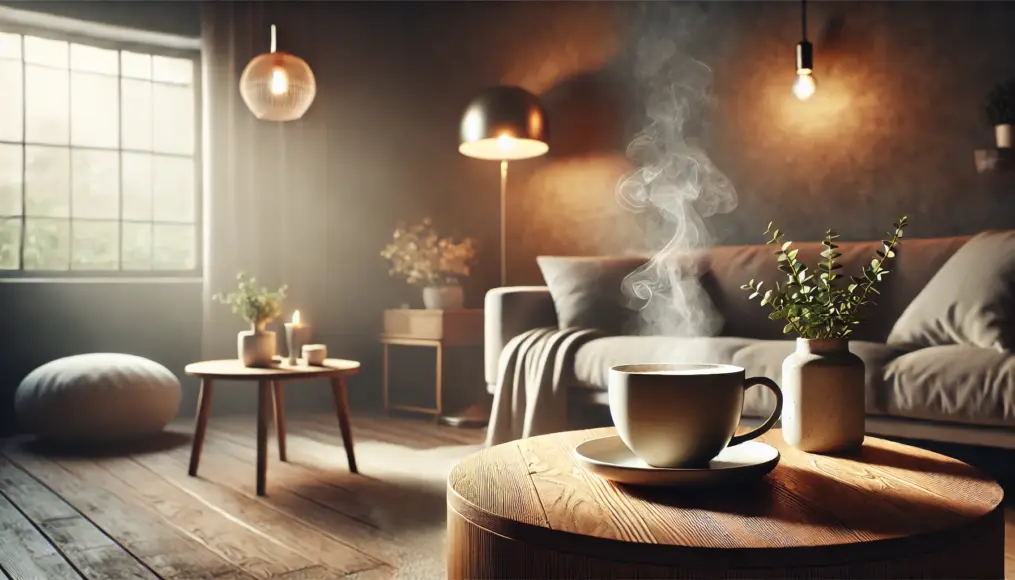
Perfect for Relaxing Before Bed
Thanks to its lack of caffeine, decaf coffee is the perfect beverage to enjoy before bedtime.
Adding warm milk or a touch of honey enhances its relaxing properties.
The warmth of the drink slightly increases your body temperature, promoting a soothing transition to sleep.
For those seeking better sleep, decaf coffee is a great ally.
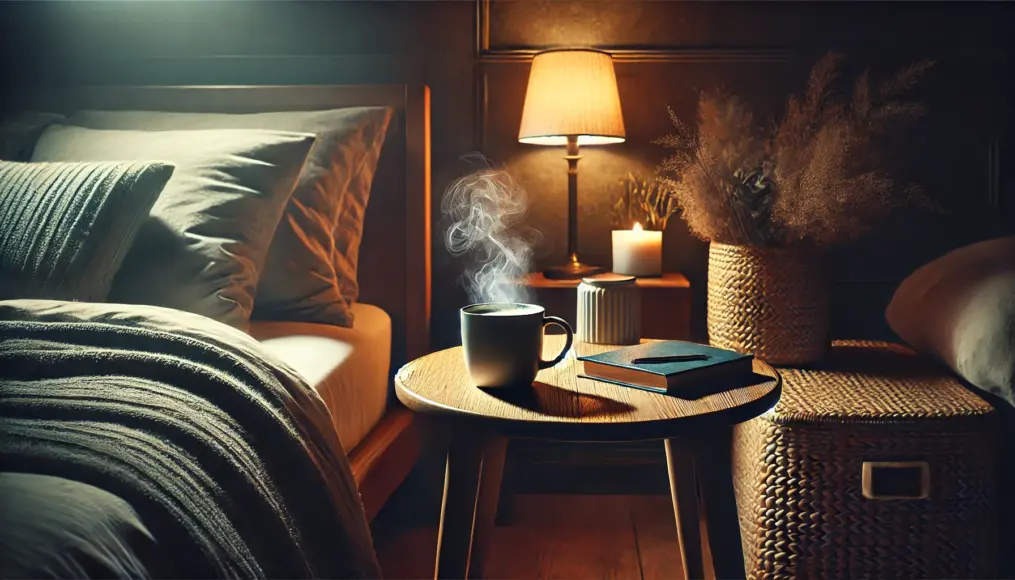
Creating Your Personal Relaxation Space with Decaf Coffee
To elevate your relaxation time, the ambiance and setting for enjoying your decaf coffee are crucial.
Here are ideas and tips to make your coffee moments truly special.
Incorporating these elements can turn a simple coffee break into a luxurious escape from daily life.
The Synergy of Aroma and Coffee
Combining decaf coffee with aromatherapy candles or essential oils can double the relaxation effect.
Scents like lavender or chamomile pair wonderfully with the coffee’s aroma, creating a harmonious atmosphere.
Pour your coffee into a favorite cup, dim the lights, and enjoy a unique, calming moment.

Cherishing Moments in Your Favorite Spot
Choosing the right place to enjoy your coffee is equally important.
Whether it’s your living room sofa, a cozy reading nook, or a balcony under the stars, the right setting enhances your coffee experience.
Discovering your own “oasis of calm” transforms coffee time into a refreshing retreat from daily stress.

Nighttime Uses for Decaf Coffee
Decaf coffee is safe to consume at night, making it versatile for various uses.
Here, we’ll introduce ideas to make your evenings extra special with decaf coffee.
These tips highlight how decaf coffee can bring enjoyment and relaxation to your life.
A Companion for Late-Night Conversations
Decaf coffee is perfect for late-night chats with friends or family.
Sipping on a warm cup while sharing stories adds a cozy touch to the conversation.
Pairing the coffee with desserts or snacks elevates the experience, creating memorable moments.

Café-Style Nighttime Creations
Enjoy café-style creations with decaf coffee, such as lattes or caramel macchiatos, perfect for the evening.
Adding frothy milk easily brings the café atmosphere to your home.
Play some relaxing music, and this ritual becomes a cherished part of your night.
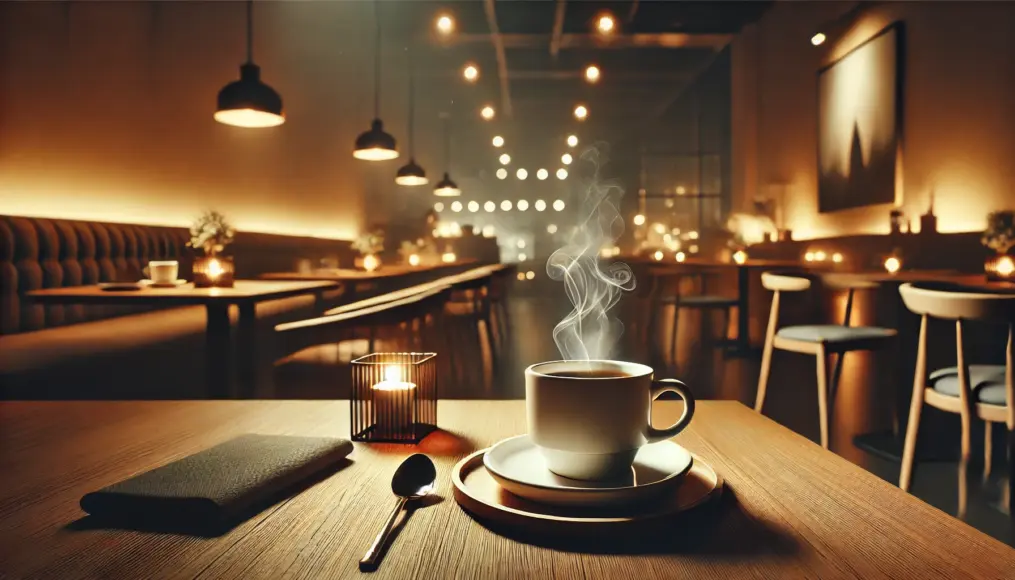
Rediscovering the Charm of Decaf Coffee
Decaf coffee has become a popular choice for those looking to reduce caffeine intake while still enjoying a comforting and flavorful brew.
With its diverse production methods and types, the process of finding your perfect cup can be an exciting journey.
Moreover, through careful roasting and bean selection, you can savor the depth of flavor and aroma that decaf coffee offers.
Incorporating decaf coffee into your daily routine could open the door to a whole new coffee experience.
Why not explore a fresh way to enjoy coffee and discover something uniquely yours?
We’d love to hear your thoughts about this article or your favorite decaf coffee in the comments below!











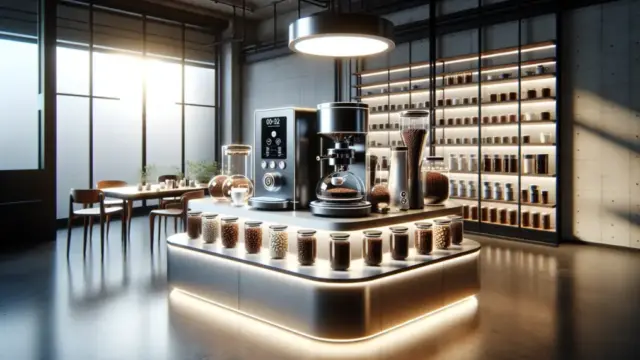








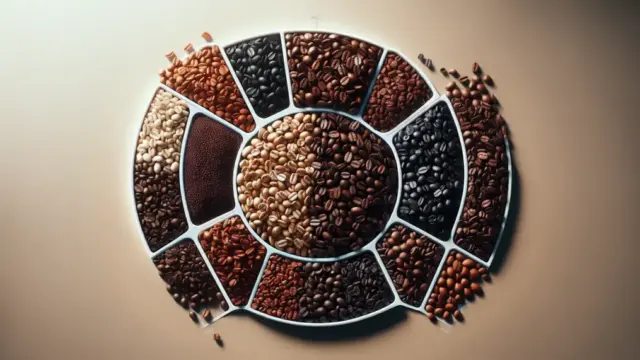






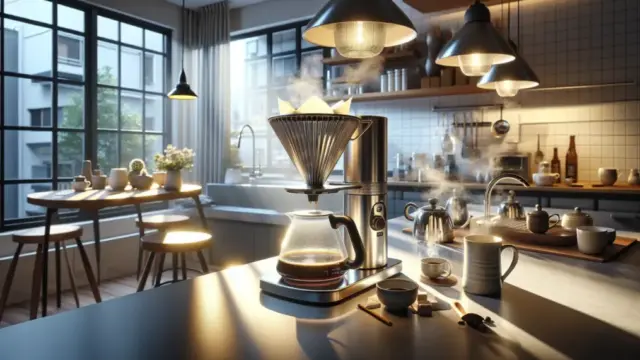
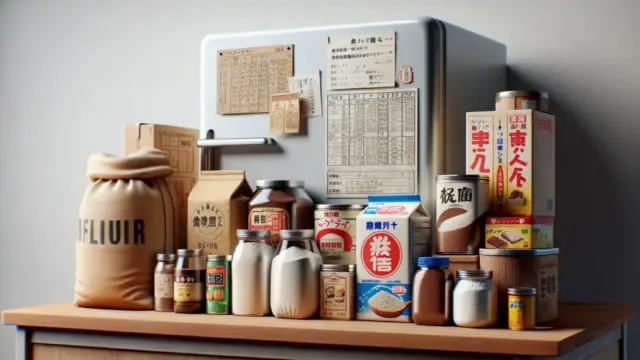

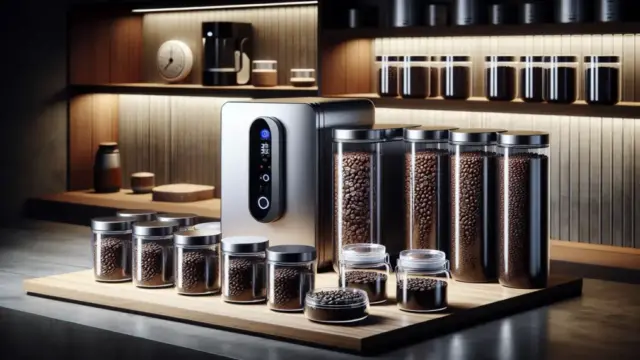







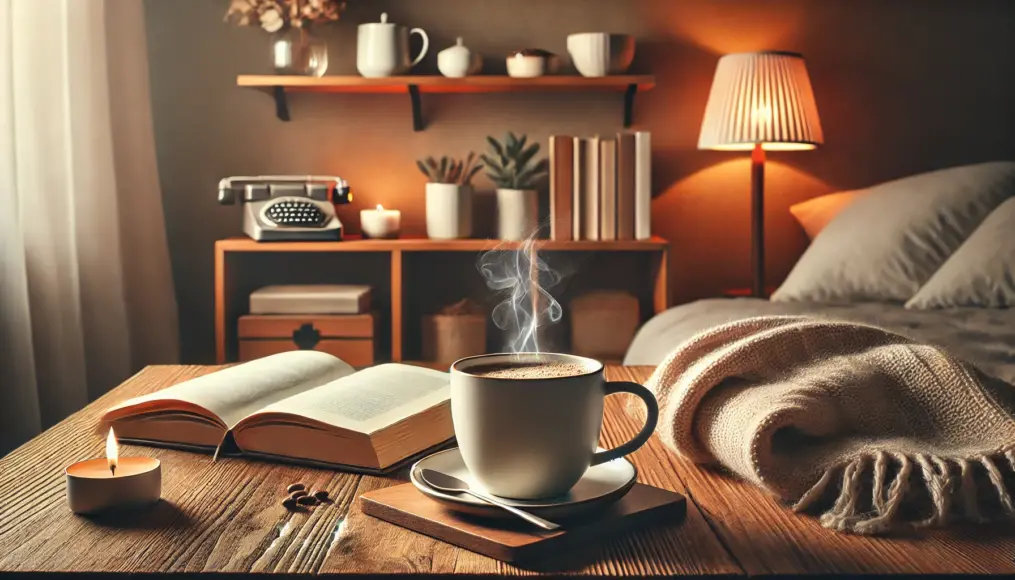


Comment